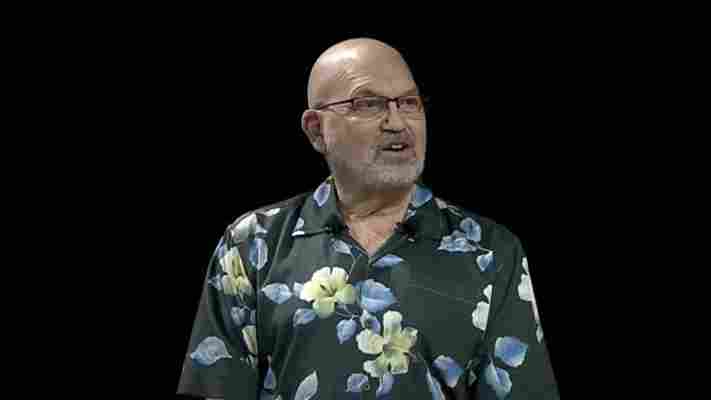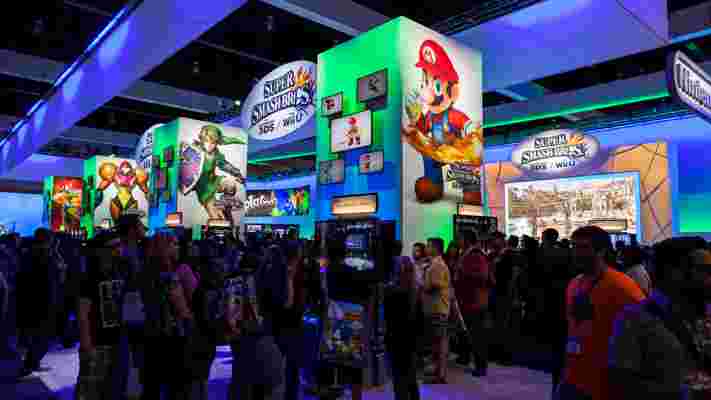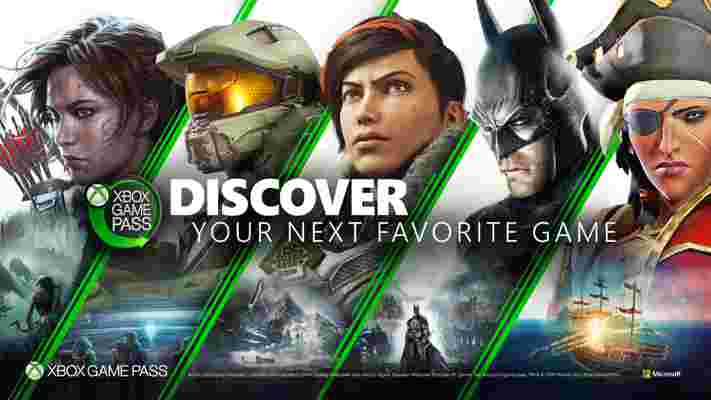It's been just six months since Korean auto manufacturer Hyundai acquired buzzy robot developer Boston Dynamics, and the two are still getting to know each other and all the opportunities that lie ahead. This was evident at CES 2022 : During the Hyundai keynote, Boston Dynamics Founder and Chairman (and likely chief robot nerd) Marc Raibert quickly corrected himself on the pronunciation of his new parent company's name.
A day after that keynote Raibert told a collection of Zoomed in tech journalists that Boston Dynamics is still building a relationship with Hyundai and identifying where they can fit in and how their technologies overlap.
At this moment, their comingled robotics work is minimal. Hyundai's MobED platform has nothing to do with Boston Robotics. It's also very much a research project. But figuring out how Boston Dynamics Artificial Intelligence (AI) technologies can add value to cars is very much in the roadmap.

There are clear areas of overlap, like how robots and cars - self-driving ones, in particular - can make use of vision systems. Still, Raibert's keenly aware of the divergence in need: "There are similarities and differences," he told us. In reliability, for instance. What a car traveling 60-to-70 mph on sometimes unstructured or unpredictable roadways needs is quite different from what a factory robot like the Stretch robot might require.
Even so, Raibert sees significant opportunities on the manufacturing side. "We're identifying factories making cars - legacy and futuristic ones - [for robots] to take on tasks that either aren’t being done or could be."
Spot Lite
There's no indication that Hyundai plans a radical shift in Boston Dynamics' core robot-development strategy, but I was curious how working with such a consumer-facing brand might impact future Boston Dynamics projects.
After all, the robots Boston Dynamics currently develops - the humanoid Atlas , the quadruped dog Spot , and the wheeled and stretchable Stretch - are in the conversation because, at least in the case of Spot and Atlas, they appeal to consumers. It's probably all that dancing .
I asked Raibert if Hyundai could push Boston Dynamics to develop more consumer-friendly versions of their robots and suggested a "Spot Lite."
“We would all love to have a consumer robot, something like Spot or Spot Lite that are low cost. But it’s not easy to get there.”
To illustrate the difficulty, Raibert explained, “We even worked for years with Sony on AIBO [the company’s nearly $3,000 robot dog] making ones that you’ve never seen that are more capable.”
Sony's two go-arounds with consumer-grade robot companion dogs have been marginally successful. The company introduced the first AIBO (which it then insisted was not a dog) back in 1999 . It went through a few iterations before disappearing. A redesigned, and very puppy-like, AIBO arrived a few years ago at CES, but still sells for an oppressive $2,800.
It's hard to know if Boston Dynamics tried to help during the first interaction or this new one, but I would love to see all the failed models. My guess is they were amazing but would've jacked up the price to well over $20,000. Boston Dynamics headless Spot currently costs $75,000, and you still have to know how to program it to do something useful.
Raibert also reminded me of how many social robot companions have failed over the years. There's the issue of finding the right paradigm and getting costs under control.

There is cause for optimism, though. Raibert, who said he's been working on robots since before the days of the mini computer, finds that the smartphone industry is particularly helpful in driving down the cost of components including cameras and processors, things that can be used in future robots. "We're getting huge help," he said, adding that on the subject of affordable companion robots, "I think it'll happen."
What might happen sooner, though, is a wave of senior care bots. In answer to a question from an AARP reporter (my buddy Ed Baig), Raibert said he'd had the experience of caring for his 88-year-old aunt in the last days of her life and, "I do think there’s an opportunity. I think having robots that can help with those tasks is real." Raibert also believes that cost may be less of an issue because there are deeper pockets for elder-care bots than there would be for consumer robots.
It's certainly something Raibert wants. While not revealing his age, Raibert said he's well into the range of the AARP audience. ‘I don’t want my kids to have to get me dressed in the morning. I want a robot to do that," he said
Boston Dynamics robots are already at work in harsh and difficult environments, as well as doing such standard factory work as patrolling the inventory aisles. So should nurses and home health aides fear for their jobs? Raibert doesn't buy it. He said robotics often create jobs in the need for programmers, designers, and repair people. "I think robotics is like every other technology: cars, computers, airplanes, lasers. They cause change, and all that change isn’t bad.”
Speaking of change, what if -- and now hear me out, Boston Dynamics -- we cut the number of Atlas dance videos in 2022 down by, say, two, and use those cycles to ramp up Spot Lite production? Just a thought.
Why I’m grieving E3
Comic book fans have Comic-Con, motorbike enthusiasts have Sturgis, film fanatics have Cannes and motorheads have Goodwood. Whatever your hobby or interest, there’s probably one mammoth event to celebrate it that’s on your bucket list.
For gamers, that event is usually E3 - or, at least, it was. While E3 is technically a trade show, over the years the event has grown to become a celebration of gaming: media attends to report on the biggest upcoming games while fans attend to get their hands on the newest releases and to be among like-minded individuals. I can only describe it as a paradise for gamers. Where else would the average person have the chance to play the upcoming Borderlands ahead of its release? To meet their favorite Twitch streamer in the flesh? Or even run into the cast of 13 Reasons Why ?
But the Covid-19 pandemic has seen the event shift to being entirely online in recent years, as opposed to its previous form as an in-person show with conferences streamed online. Earlier this week, organizer ESA confirmed that, once again, there will not be an in-person E3 this year - in fact, it’s unclear if there will be an E3 at all, digital or otherwise.
It makes sense, given the unpredictability of the world right now, but it’s starting to feel like this isn’t simply a Covid defense measure. Instead, it seems like a way to slowly, quietly put E3 out to pasture. E3 appears to be dead, and I can’t help but grieve its passing.
A place of belonging

I’ve only ever been to E3 once: E3 2019. Like many gamers, the event had been on my bucket list since childhood, and I’m pleased to say it didn’t disappoint. The buzz in the LA Convention Centre was contagious and the possibilities seemed almost infinite. You can’t help but get wrapped up in it. “This is why I do this job,” I kept muttering to myself as I took in the giant booths and caught glimpses of developers I’ve always admired. I’m not afraid to admit I cried when Halo Infinite was announced.
But it wasn’t simply the adrenaline of the news beat or being among respected peers that made E3 feel special, but the feeling of belonging: these were my people. Teenagers excitedly reeling after getting their hands on the game they’ve been queuing all day for, parents carrying bags of free merchandise for their buzzing children, someone cosplaying as Kratos eating an oversized pretzel. Fans deserve this annual pilgrimage.
But that’s not to say that fans should have to attend in-person to feel part of the celebration. Going to LA simply isn’t accessible to everyone and the pandemic has highlighted that E3, grounded in its physical location, has become somewhat out-of-touch in an always-online, digital world. Geoff Keighley’s stream-from-anywhere Summer Game Fest has only emphasized that.
E3 vs Summer Game Fest

That said, Summer Game Fest also feels somewhat disjointed compared to E3. Where E3 is several condensed days of events and conferences, Summer Game Fest instead acts as an overarching event for the publisher’s individual conferences. That means that announcements are more spread out and, quite frankly, it doesn’t really feel like a cohesive event, especially in 2021 when some conferences sat under either the E3 2021 or Summer Game Fest banner - or both.
While some may prefer E3, there’s no denying that Summer Game Fest is certainly more accessible (ignoring the copious amount of ads and sponsorship), especially during these uncertain times. Where E3 is primarily an in-person event, with conferences streamed, Summer Game Fest is entirely digital, streaming conferences globally but also offering fans playable downloadable-or-streamable demos to try out at home and teaming up with publishers for in-game events.
It’s the latter that is key here. Summer Game Fest lets players across the globe interact with the event from the comfort of their homes - which has never been as important as it is in the current climate. In contrast, E3’s recent digital offering simply hasn’t been of the same caliber, meaning it has become increasingly obsolete now that both national and international travel has become challenging.
For E3 to become relevant again, it would need to become more akin to Keighley’s event, at least in its digital form. The E3 app and site need to act as more than simply a schedule and map guide, instead perhaps offering interactive events, competitions and the ability to watch conferences on the go from anywhere. It could maybe even include some sneak previews and interviews to encourage the audience to actually engage with the content, making E3 a brand to be engaged with, not just a show. What Summer Game Fest does brilliantly is making its conferences and content feel interconnected, whether that’s through social media hashtags, celebrity endorsements, or in-game events. Geoff Keighley has his finger firmly on the pulse of the industry and it shows.
But the inexistence of an in-person element of Summer Game Fest (bar its Kickoff Live show) is certainly felt and that’s where E3 truly shines. That’s likely because E3 is first and foremost marketed as an in-person event, offering a fairground-like bonanza for gamers to explore. That feeling can’t quite be captured digitally: the feeling of being in a hall with thousands of others who are as excited as you are. That element is just one part of E3, though it's one that’s leaned on perhaps too heavily. E3 does have the foundation of a solid hybrid event, as conferences are streamed globally and players get access to (albeit limited) demos at home via publishers. But the entire package needs to be wrapped up in a neater bow to succeed in a post-Covid world.
Perhaps E3 could even go one step further than that, becoming an in-game event in itself or (and I hate to say it) a metaverse experience, allowing those unable to access the in-person event to experience the gravity and scale of the conference without ever leaving their homes. Just imagine attending E3 in Animal Crossing , rocking up to a booth and watching a sneak peek of an upcoming Nintendo game. Nowadays, it’s not out of the realms of possibility.
With an enhanced digital experience, E3 could be an enthralling experience for gamers at home or at the show. In short: the E3 needs to no longer be promoted as in-person first. By focusing on a hybrid model, with a digital offering for global reach but a convention for those who want to experience it first-hand, the ESA could be on to a winner. It would mean that fans can come together to celebrate gaming, either in person or online, with that in-person element offering something that Summer Game Fest currently doesn’t.
That being said, we could see Summer Game Fest fill that gap once the pandemic is over. And, given the favor E3 organizers ESA have lost (remember the data breach which leaked personal details of those working at the event in 2019?), that could be a likely option.
The final nail in the coffin

E3 has been on its last legs for a few years now, the pandemic has simply been the final nail in its coffin.
In recent years, Sony has opted to skip E3 in favor of hosting its own events and, following E3 2020’s cancellation, other publishers have followed suit, either taking part in Summer Game fest or going it alone.
It makes perfect sense. After all, publishers hosting their own conferences - even under a Summer Game Fest banner - allows them to control their messaging and tailor their conference to their liking. But, more importantly, it allows big announcements to breathe a little. So rather than fans and media perhaps focusing on a few big announcements from an overall event, they can pick out key announcements from a publisher’s conference.
But I can’t help feeling that, while this does benefit publishers and developers, it somewhat dilutes the sense of occasion. E3 is a rollercoaster of announcements and a pillar of the gaming year, but spreading these announcements over months can see interest wane and conferences hard to keep track of for the average person - especially with Summer Game Fest’s schedule lasting months. I know I even struggle to keep track of what is and isn’t a Summer Game Fest event.
Ultimately, if E3 does finally gasp its last breath, we need an event to take its place: an event to celebrate games together, both in-person and online. Gamers need their Sturgis, their Cannes, their Comic-Con. Right now, Geoff Keighley is primed to usher in E3’s successor, if he so chooses, but I can’t help but hold on to the hope that the ESA will finally get its act together and host the modernized E3 that fans deserve.
Microsoft is making a major pro-consumer change to its Xbox subscriptions - Sony should follow suit
Microsoft will be making several pro-consumer changes to its Xbox Live Gold and Xbox Game Pass subscription services in the UK.
The changes will alter the services’ auto-renewal practices, and were agreed upon following an investigation into Microsoft, Sony and Nintendo’s subscription services by the UK’s Competition & Markets Authority (CMA).
The CMA said it was particularly concerned that consumers found it unclear that membership to the subscriptions would automatically roll over at the end of each month, the difficulty consumers had in turning off auto-renewal, and that some hadn't realised they were still paying for the services after their initial subscription period had ended.
As part of the agreement, Microsoft will be making changes to its refunds policy, changing the way information about auto-renewals is presented, contacting subscribers whose accounts have been dormant, and better signally price changes.
It's committed to making the following changes:
“Gamers need to be given clear and timely information to make informed choices when signing up for auto-renewing memberships and subscriptions,” said Michael Grenfell, executive director of enforcement at the CMA.
“We are therefore pleased that Microsoft has given the CMA these formal undertakings to improve the fairness of their practices and protect consumers, and will be offering refunds to certain customers.”
Analysis: a small change makes a big difference

Auto-renewing subscriptions are one of the uglier aspects of modern gaming. If not carefully watched, they can quickly turn what should have been an affordable way of playing games into an expensive burden. There’s little worse than realizing you forgot to cancel your Xbox Game Pass subscription several months ago to find your wallet £50 lighter.
The changes Microsoft has committed to making here should go some way to alleviate those problems, especially the option to claim a refund on months you’ve mistakenly subscribed to.
There are limits to the changes, however. The pro-rata refund only applies to those who’ve taken out a 12-month subscription, so there’s nothing new to help players who signed up for less, such as a single month with which to test out the service. Equally, though Microsoft might better signal to new sign-ups that their subscription will automatically renew, there’s still no way of turning it off from the get-go. You’ll have to remember to opt-out of auto-renewal after the service is up and running.
For all its caveats, it's a step in the right direction and one that Sony, too, will also hopefully make. The CMA's original investigation concerned all three of the major gaming platforms, so it's likely Sony and Nintendo will make similar changes to their services.
It’s not just gaming that suffers from pernicious subscription practices. Amazon has long been criticized by consumer rights groups for obscuring how users can cancel their Prime subscription. That journalists have to write guides instructing consumers how to cancel their Amazon Prime membership is a sign that the process is buried too deep for the average person.